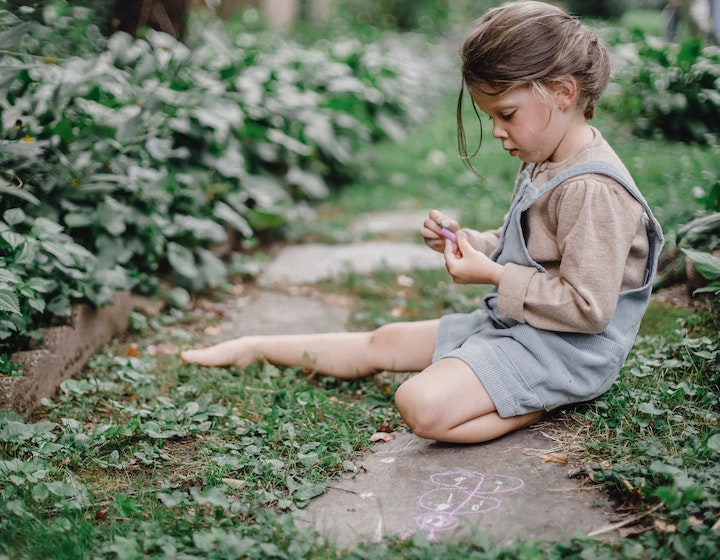
Two little words we usually hate to hear our kids whining at us? “I’m bored!” But studies show that being bored is really beneficial for our kids. So how can we get kids to embrace boredom and reap the rewards?
We all know the discomfort boredom can bring to us as parents. Just hearing the words “I’m bored!” and seeing our kids feel that discomfort of not knowing what to do, spikes our blood pressure and sends us rushing in trying to fill the void. Extra-curricula activities, (educational) TV shows – whatever works to stop the whining.
Think back to the last time your child was left to be truly bored. The last time they were left to meander through the feeling until they found something meaningful to pass the time? If you’re like the majority of us, it’s probably been a while.
And never is boredom such a hot topic as during holidays. A few years ago I remember suffering this only hours into the first day of the holidays. The sun was rising outside. I was still in bed, no lunches to pack, no school runs to do. Enjoying a moment of silence. And before I had a chance to open my eyes I heard my 7-year-old daughter shuffle into the room and say … “Mum, can I watch the iPad?”
It really is the mark of today’s generation. Thanks to the presence of digital devices and their endless entertainment potential, our kids simply don’t get practice in being bored. By the tweens we know from research that our kids spend on average up to 5-7 hours on devices per day. A number that rapidly rises by the time they hit high school. If we add those hours to the time our kids spend in school and doing extra-curricular activities – very little time is left to practice ‘being’ bored.
Don’t get me wrong – I’m not against tech or organised activities. There are many great things that both of these can offer our kids. But allowing our kids to get into the habit of grabbing devices when they are bored – or relying on mum and dad to keep them entertained – means they often miss out on some very tangible benefits that will support their long-term mental health and character development.

Why being bored is beneficial
According to boredom expert and psychologist Sandi Mann, something interesting happens when our brains feel bored. They go on a hunt for something to stimulate them. “We might go off in our heads to try and find that stimulation by our minds wandering, daydreaming and you start thinking a little bit beyond the conscious, a little bit in the subconscious which allows sort of different connections to take place”. It is in this space of boredom where our kids learn to be creative, self-soothe, persevere and really regulate their nervous systems.
Reading this you may be thinking, “Wait, it’s torture trying to get them to do nothing – impossible!” I hear you, mama. I’ve been there. But it is 100% possible to make a change in your home to help your kids turn boredom into something productive, with a few tweaks.
Here are some of my top tips for setting up your home as a boredom haven this vacation.
1. Remind yourself of the end goal
Remember the end game on our parenting journey: we are all ultimately here as parents to help our kids grow into mature, balanced adults. So what specific qualities do you want to help your child develop long term? Self-regulation? Resilience? Problem Solving? Focus? Helping them navigate boredom is an amazing way to nurture all of these qualities. Remind yourself of this goal often!
2. Get them engaged
At the beginning of every holiday I get my girls to write three lists by answering three questions:
- What are some things you can do on your own when you are bored? e.g. sketching, writing to a pen-pal, making a flip book.
- What are some things we could do as a family when we have free time? e.g. board games, picnic, cooking.
- What are some things you’ve always wanted to learn? e.g. learning to skateboard, playing a new song on the ukulele.
Then they read through their lists and we talk about what resources I can help them source so they can do these things. Those lists get posted on the wall and we refer back to them in moments of boredom.
3. Remove tech from the get-go
It is close to impossible for our kids to remove themselves from their devices by their own volition at first, so choose a period of time they will be tech-free and help them by gathering iPads and phones and putting them out of sight for this allocated time. And switch off the TV! Kids on their own won’t look for limits on tech, but they often are relieved when we set up this container for them to have a break.
4. Commit to the first month!
The first few attempts may be painful but making a (tech-free) time and space will eventually foster positive, healthy habits. I often announce “today is ‘tech-free’ day” or “this afternoon we are going to have free time”. After doing this with my girls, for the past 18 months I now hear “okay” more than “what!? no!” every time I announce it is coming up. The more your kids do it the more they will thank you for the fun times they discover and the space you helped them carve out (promise!).
It takes 28-30 days to establish a new habit so consider adding it to the family calendar or announce it the day before at dinner. Even ask your kids when shall we put ‘free time’ in the week?
And remind them that having a little less tech time means they have more time to do other things they wanted to do (refer to the list!)

5. Be with your own discomfort
When you find yourself itching to jump in and save your child from their boredom, stop and take a deep breath and remind yourself: “It’s okay for them to feel uncomfortable – that’s where they learn to find their own resources!”
Set yourself a challenge: give your kids the space and opportunity to work this out and see what they are capable of! The number of times I have stepped away (repeating my mantra: they’ll figure it out!) and have come back to some unbelievable projects like a fort of pillows, an illustrated book or a design for their new business. Let them surprise you!
6. Expose them to new ideas
Every week in our house we spend some time learning and talking about places around the world, different traditions and cultures. Sometimes when we go to the museum, a park or on a holiday I can see it gives them all sorts of new ideas. Expose your kids to novelty and wonder and help stimulate their dormant imagination.
7. Get in there and model behaviour!
There is nothing like showing your kids how it’s done. Let’s put our own phones down and model what we want our kids to do. What is something you have always wanted to do? Need more inspiration? Check out journalist Manoush Zomorodi’s Bored & Brilliant podcast, book and challenges!
It really takes practice to teach our kids this valuable skill but it is worth it in the long run! Let’s bring boredom back these holidays, mama!






 View All
View All




 View All
View All










 View All
View All







